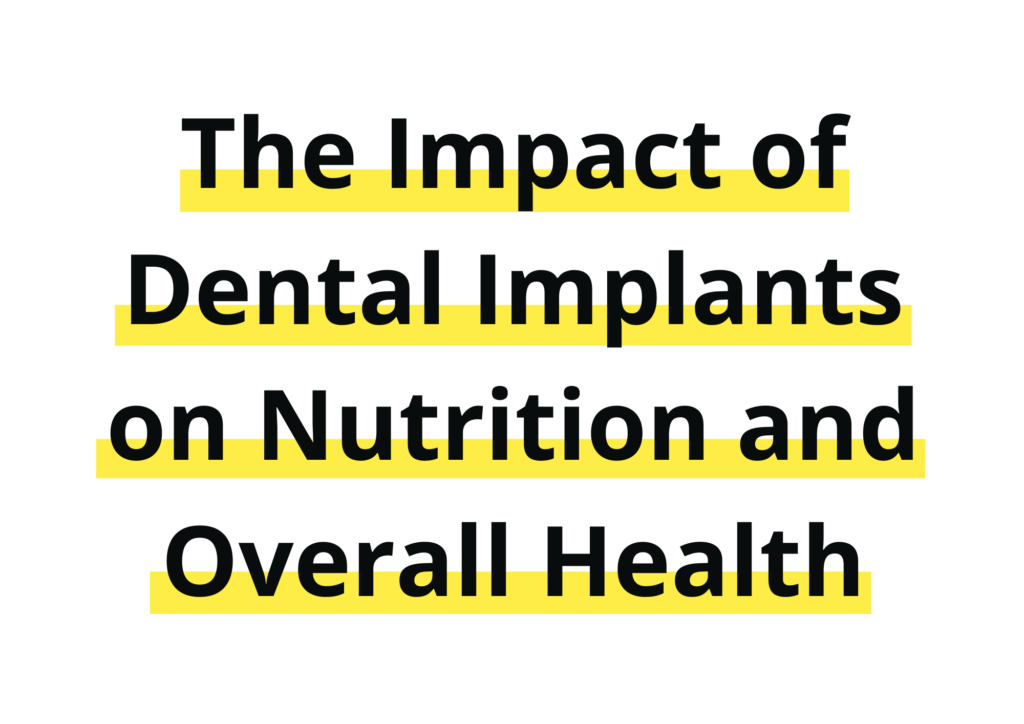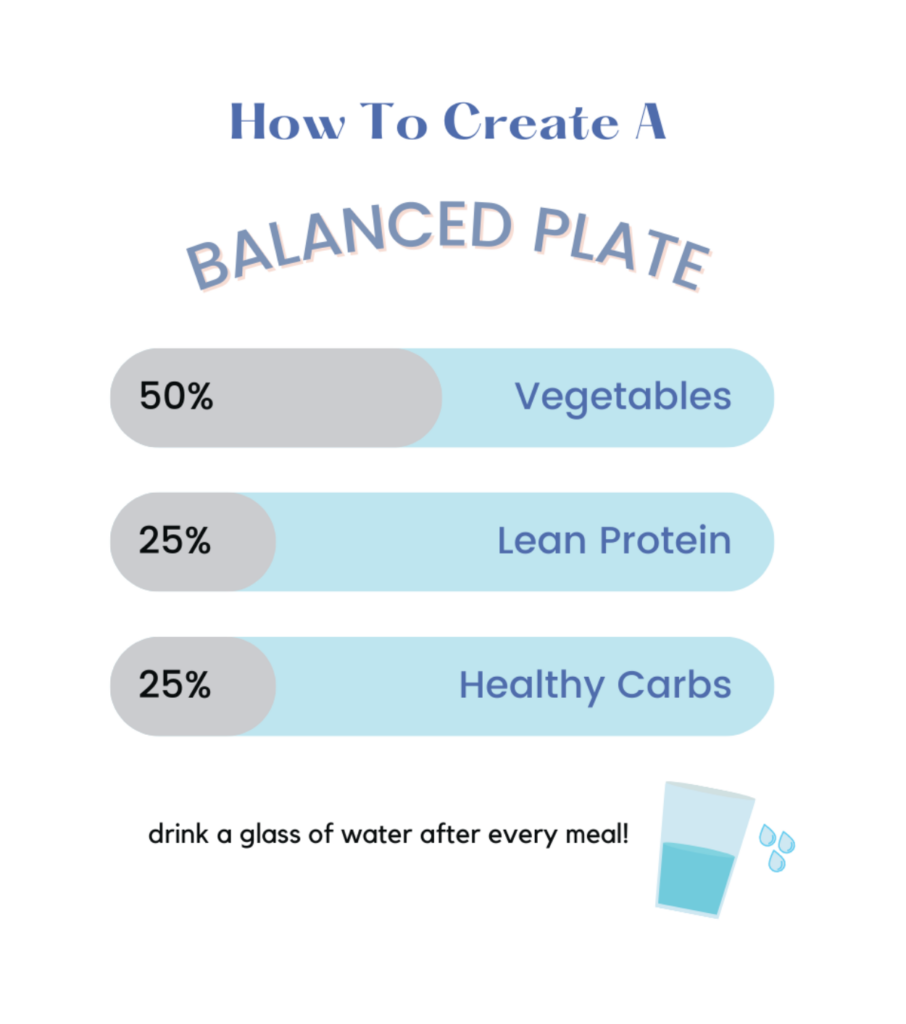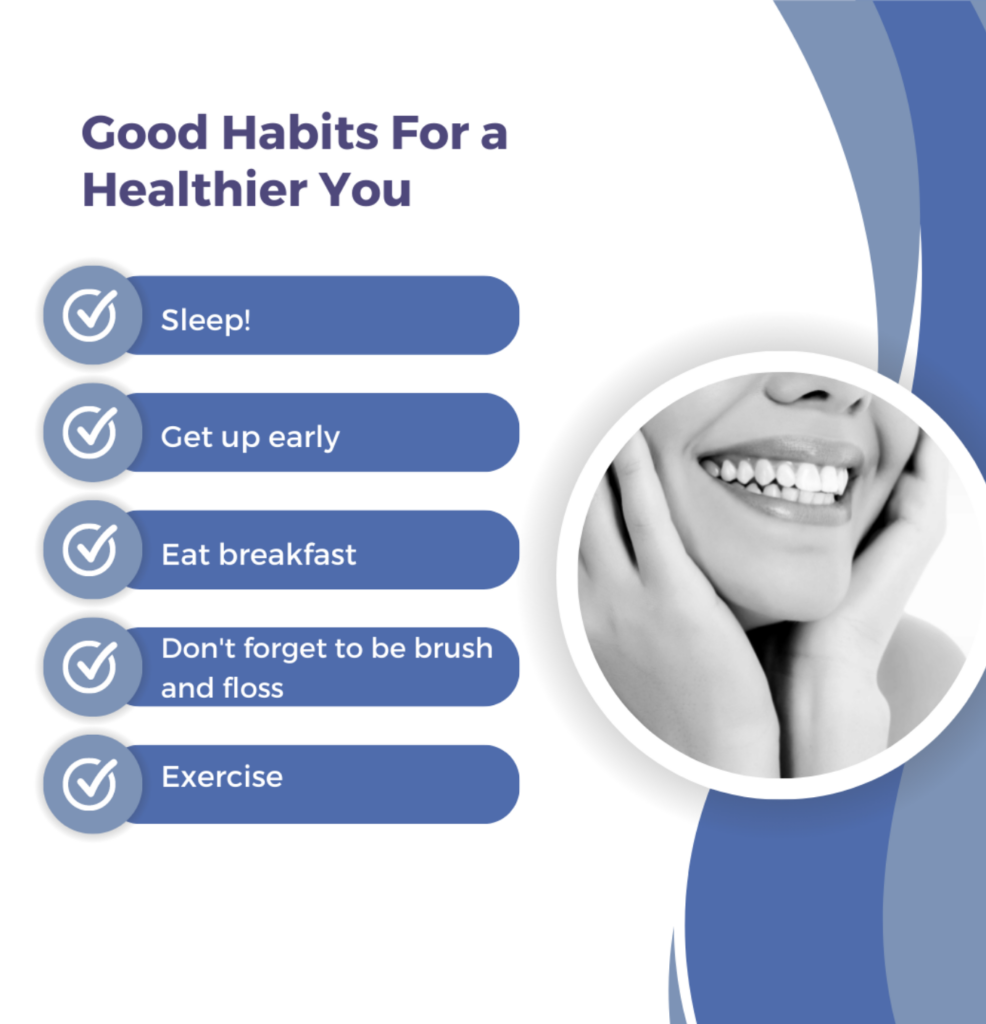

By Leanne.
Share article:
We all know that a nutritious diet is important for our general health right? But did you know that it’s also crucial for our oral health as well. And that our oral health in turn affects the rest of our body? Complex hey?
Besides restoring one’s smile and confidence, dental implants can also play a vital role in promoting better nutrition and improving overall health. In this blog post, we will explore the significant impact dental implants can have on improving your oral health, your nutritional state and overall health in general.
How Does Tooth Loss Affect Nutrition?
If you have lost a tooth or teeth, you may not be able to eat meat, raw vegetables, and other foods that are essential to improving your well-being.
Painful or missing teeth can make it difficult to consume fibrous foods, which can result in a diet heavy in cholesterol/carbohydrates and poor in protein, vitamins, and minerals.
The association between tooth loss and chewing problems may have an influence on food choices and consequently impact nutrition and quality of life.
Chewing/biting deficiencies can lead people to select foods that are heavily processed and easier to chew, resulting in an unbalanced diet that does not meet daily nutritional requirements.
Supporting Healthy Eating
Most of the taste buds in your mouth are on your tongue. However there are some taste buds on the roof of your mouth. People who wear an upper denture have a plate that covers the roof of their mouth or palate, which affects their sense of taste. One of the benefits of dental implants is not having to cover the palate, so you’re able to use all your taste buds to savour your food.
By providing enhanced biting and chewing capabilities, dental implants allow you to eat a variety of nutrient-rich foods required to stay healthy, foods that were challenging or impossible for you to eat before.
Implants are sturdy like natural teeth, allowing you to chew your food more effectively. After your initial healing period you don’t have to stick to soft foods that you consumed previously to avoid tooth pain or discomfort.
To live a healthy life, it is imperative to eat a diet composed primarily of proteins, meat, fish, poultry, and plant-based foods such as fruits, vegetables and nuts.
When your oral health is compromised, it alters your food choices and negatively impacts food intake which can lead to other health issues.


One of the key goals of successful dental implant treatment is to increase your ability to chew effectively and painlessly, allowing you to consume more nutritious meals and improve your overall health.
Dental Implants help to prevent bone loss, keep adjacent teeth stable, prevent facial sagging and premature aging, and make it easier to eat your favourite foods.
Improved Oral Heal and Improved Quality of Life
Replacing decayed teeth ‘that are beyond repair’ with implants will improve the health of your entire mouth. However, tooth removal alone won’t cure gum disease, but it can be a vital step of your overall treatment plan to get your oral health back on the right track.
When you make the investment in implants, you’re more likely to be more diligent with self-care. As a result, maintaining a thorough oral hygiene routine becomes a priority for many people who are given a second (or perhaps a first) chance at a beautiful smile.
Dentures (especially when newly fitted) can actually increase the risk of malnutrition due to the inability to eat and chew food properly, especially as you age. Denture teeth are plastic and can float around in the mouth, so they aren’t able to cut and tear up food as efficiently as dental implants that hold fixed bridges. Dental implants are designed to function like natural teeth and can improve the bite force remarkably in comparison to loose decayed teeth or ill fitting dentures.
Malnutrition can then lead to deficiencies in protein, vitamins such as B12 and minerals such as iron. A diet low in iron can result in a swollen tongue, cracked lips, mouth ulcers, diarrhoea and general lethargy. A diet low in vitamin B12 can result in a mouth inflammation, burning tongue, and dry mouth impeding taste.
Dental implants allow you to consume a more nutritionally diverse diet, reducing the risk of malnutrition, properly chewing food is the first step in the digestion process. When food is thoroughly broken down, it becomes easier for the digestive system to extract the essential nutrients.
To ensure that your dental implants remain healthy and strong, it’s important to consume a diet that is rich in vitamins and minerals. A diet rich in fruits, vegetables, whole grains, lean proteins, and healthy fats can provide your body with the nutrients it needs to maintain a healthy smile.
Essential Vitamins
Vitamin C is a powerful antioxidant that plays a crucial role in maintaining healthy gums
Vitamin D is essential for maintaining healthy bones, and it’s crucial for dental implant health. It helps the body to absorb calcium, it also helps to reduce inflammation and boost the immune system, which can help prevent gum disease.
Calcium and phosphorus are two minerals that are essential for dental implant success. They play a crucial role in maintaining healthy bones, which are necessary for supporting dental implants.
Vitamin K is essential for blood clotting, which is necessary for the healing process after dental implant surgery. It also helps to maintain healthy bones and teeth by regulating calcium.
Zinc is important for immune function and wound healing. Good sources of zinc include lean meats, seafood, beans, nuts, and whole grains.

But remember – like all surgical procedures, dental implants come with some risks including:
- damage to surrounding teeth or tissues
- bleeding
- implant failure
- gum recession
- infection
- allergic reaction to anaesthetic
- nerve or tissue damage
Some research suggests that metal medical and dental implants may cause an autoimmune reaction in people with metal allergies and other genetic predispositions.
Something to check with your dental provider prior to commencing treatment.
Things to consider:
Hard, crunchy and sugary foods such as popcorn, nuts, and hard candies, can damage dental restorations by causing chips or cracks.
Carbonated drinks such as sodas and sparkling water, not only erode tooth enamel and increase the risk of tooth decay. They can also weaken dental implants by causing bone loss.
If your diet is lacking – Seek the advice of a nutritionist or dietitian, they can assess your need for supplements for overall health including dental implant health.
Probiotics: Microbes are beneficial bacteria that live in the gut and help to support the immune system. They can also help to reduce inflammation and prevent gum disease.
Omega-3 Fatty Acids: Are essential for maintaining a healthy heart, brain, and joints. They can also help to reduce inflammation and promote healthy gums.
Coenzyme Q10: Is an antioxidant that is essential for energy production in the body. It also helps to reduce inflammation and promote healthy gums.

What you can do!
Make lifestyle changes to support dental implant health:
Exercise Regularly: Exercise can help to reduce inflammation and promote healthy bones and teeth. It can also improve overall health and reduce the risk of chronic diseases.
Manage Stress: Stress can have a negative impact on oral health and increase the risk of gum disease. Managing stress through relaxation techniques, such as meditation and yoga, can help to reduce inflammation and promote healthy gums.
Get Enough Sleep: Getting enough sleep is essential for overall health, including dental implant health. Lack of sleep can increase the risk of gum disease and implant failure.
Drink Water +++
Lastly: Avoid smoking and restrict the amount of alcohol you consume on a regular basis.


Dental implants can help improve mental health
Dental implants are not just an investment in dental health, but your overall health and psychological well-being. Dental implants have revolutionised dental care by providing a durable and natural-looking solution for missing teeth that help improve your confidence, enhance your self esteem and boost your social interactions.


Conclusion
In addition to consuming a nutrient-rich diet, it’s essential to maintain good oral hygiene, avoid certain foods, take supplements when needed, and make lifestyle changes to support dental implant health. By following these recommendations, you can fuel your smile and maintain healthy and strong dental implants for many years to come.
By providing better chewing ability, expanded food choices, and maintaining jawbone health, dental implants contribute to improved digestive health and overall well-being.
Additionally, the psychological benefits of dental implants can positively influence our lifestyle choices, leading to better overall health outcomes. If you have missing teeth, considering dental implants can be a crucial step towards enhancing both your smile and your health. A beautiful smile is more than just a cosmetic feature, it’s a sign of good health
Contact your nearest All at Once® provider via the links on the website to get started on your journey to a healthier new you!


Disclaimer: The information provided on this platform, including text, graphics, and images, is intended for general informational purposes only. It is not a substitute for professional dental advice, diagnosis, or treatment. For specific dental concerns, it is crucial to consult with a qualified dental practitioner. They will be able to assess your individual circumstances, provide accurate diagnoses, and offer appropriate treatment options tailored to your specific needs
Print article:
Share article:
Subscribe To Leanne's Blog
Ready for your new smile?


